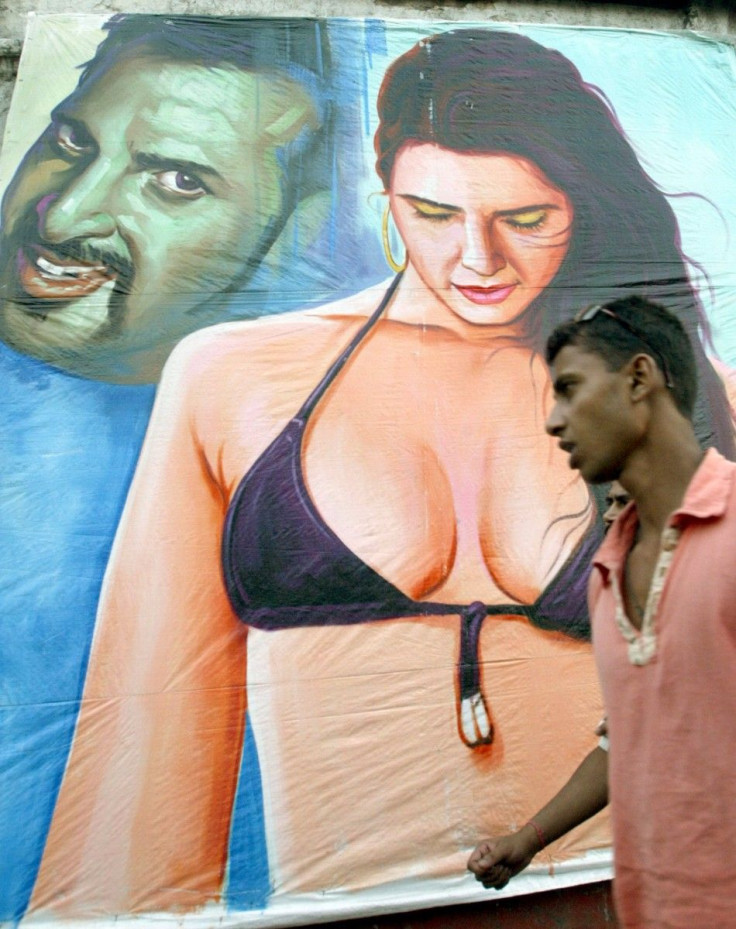Should India Ban Access To Internet Pornography To Ease Rape Epidemic?

A prominent Indian lawyer thinks he has a way of reducing the number of rapes in the country -- he wants the government to ban pornography on the Internet.
Kamlesh Vaswani, who is based in Indore, Madhya Pradesh, has filed a petition with the Supreme Court to make the viewing of pornography a “non-bailable offense,” meaning the violator would be subject to arrest by the authorities.
"I believe that watching porn corrupts people, and many of the crimes that happen to women, girls and children, such as sex-trafficking, are mostly related to pornography," Vaswani told The New York Times.
Pornography, even soft-core fare like Playboy, is already illegal in India, but, as with most other vices, it is impossible to restrict. Yet Vaswani and some police officials in India believe that watching porn incites men and boys to commit sexual assaults on women and children.
“What we are discussing here is not [free] speech, but conduct. This cultural pollution has to stop,” Vaswani told the FirstPost newspaper.
Vaswani said he was inspired to draft his petition in the wake of the now world-famous gang rape of a Delhi medical student last December, which spurred waves of protest and national soul-searching across India.
Vaswani’s petition has found some support among the intelligentsia.
Vaishna Roy, the deputy editor of The Hindu newspaper, wrote in a column entitled “Freedom that must have limits” that the public’s safety must be considered when mulling how much access to objectionable material on the Web should be allowed.
“Pornography degrades, subjugates and reinforces negative stereotypes about women, which is why access to it must be made tougher,” she declared.
“Freedom without limits is just a word.”
Roy further cited that the men who recently raped and mutilated a 5-year-old girl in Delhi had been watching porn prior to the abduction and that, according to Google Trends, Delhi has one of the highest recorded percentages of people searching for porn on the Web.
Even if there is not a direct link between sexual assault and the prevalence of pornography, Roy noted that even in some “liberated” Western countries, governments are struggling with the issue of Internet porn and its availability, citing that Iceland and Britain have proposed some limitations on such access, especially to children.
She also commented that pornography should not be protected under the aegis of freedom of expression.
“[Porn] is not so much about erotica, as its advocates will have us believe, as it is about extreme violence, degradation and subjugation of women, and the violation of children and teenagers,” she wrote.
“It extols rape, defilement and mutilation. Most dangerously, it mainstreams all of this and packages it as the ‘normal.’ This is lethal in a place like India, where large numbers of people leapfrog from a state of total ignorance about even ordinary sex to direct exposure to vicious abuse.”
Vasav Jain, a judicial activist in New Delhi, contends the rights of the individual cease when children are endangered.
“Screams about the invasion of privacy lose potency when we’re faced with the increasing number of sexual assaults on children,” he told Indian media.
Apoorva Dutt said on the DNA news website that pornography brutalizes women and children and should be banned. However, she conceded it will be very difficult to enforce such a ban, noting India already has some 861 million active mobile-phone connections, all of which can access porn at any time.
“Thus, porn is just a Google search away,” she noted. “Much of it is horrendous videos and images of child molestation, rape and violence.”
However, civil libertarians, liberals and other critics are not convinced Vaswani’s idea has any merit.
In a column published in The Hindu newspaper, Anuj Srivas wrote: “2013 will go down, without doubt, as the year of thinking stupidly,” adding that the public’s fear of nudity and sex on the Internet represents a “sort of mass paranoia, where the fear goes beyond any rational assessment of risk.”
Srivas speculates that any “war” over the control of Internet content will be as wasteful and pointless as the ongoing global wars on drugs and terror.
Similarly, Prakash Kothari, a Mumbai-based sex educator told DNA: “The connection between pornography and sexual violence is not valid,” but added that the impact of watching porn on a sexually repressed population can be very harmful.
“While not directly linking to sexual assault, this kind of porn can and does perpetuate a pre-existent warped attitude to sex. Porn like bestiality, pedophilia and that depicting incestuous relationships should be banned,” he said.
Ranjana Kumari, the director of the Center for Social Research in New Delhi, told The New York Times, that the climate for porn watching is very different in India than it is in Europe and the U.S.
"India is a society in a phase of transition that is based on a high segregation of men and women," she said. "In this environment viewing pornography creates heightened sexual desire and aggression in young men who have no normal interaction with women and that can often lead to violent behavior."
© Copyright IBTimes 2024. All rights reserved.




















